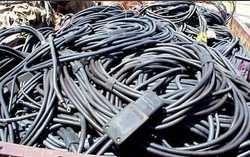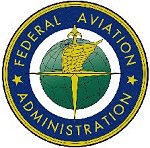Tue, Feb 04, 2003
REFERENCE: DRAFT Advisory Circular 43-FLD
 SUMMARY: This AC describes a standardized
procedure for requesting field approvals. The AC also provides
instructions for completing a new field approval checklist.
SUMMARY: This AC describes a standardized
procedure for requesting field approvals. The AC also provides
instructions for completing a new field approval checklist.
MAJOR HIGHLIGHTS: CHAPTER 1. INTRODUCTION
Who will perform the field approval and work with me during the
approval process?
What do I need to prepare when requesting a field approval?
What is the difference between the two kinds of field
approvals?
How will the repair or alteration affect the product?
CHAPTER 2. DATA
Who is responsible for gathering data to support making an
alteration?
What types of data may be used?
What is the DER's role in field approvals?
CHAPTER 3. THE FIELD APPROVAL PROCESS
 What
are the three major steps in the field approval process?
What
are the three major steps in the field approval process?
Before requesting a field approval, what research should I
conduct?
What alterations and repairs do not require a field approval?
How do I create the data package?
What happens when I am ready to submit the data package?
What is the ACO's role in the field approval process?
What will the ASI do after determining that the alteration or
repair can be approved?
What may I do after I have my data field approval?
What may I do after I have my installation field approval?
CHAPTER 4. AIRCRAFT FLIGHT MANUAL SUPPLEMENTS
What is the purpose of an AFMS and under what circumstances do I
need to create one?
How do I create an AFMS?
What happens during the AFMS approval process?
How do I determine whether the dates are correct in the AFMS and
FAA Form 337?
Where should copies of the AFMS be distributed?
CHAPTER 5. INSTRUCTIONS FOR CONTINUED
AIRWORTHINESS
 What
benefits do I gain from addressing the ICA in FAA Form 337?
What
benefits do I gain from addressing the ICA in FAA Form 337?
Why is an ICA necessary?
What can I do to prepare the ICA?
What information should my ICA include?
What are the requirements for an ICA?
What are the requirements for ICAs for aircraft certificated under
the CAR?
How should my ICA address installations that use other approved
data?
Is there any circumstance under which field approved equipment does
not need to be operational?
Are there any aircraft that do not need ICAs?
Who can ASIs contact for help with ICA?
Who is responsible for implementing the ICA and recording any
changes?
AEA COMMENTARY:
The Association commends the FAA for taking this first step
towards developing advisory materials that will standardize
expectations and procedures for local FAA approval of alteration
and repair data.
More News
From 2023 (YouTube Edition): "Ain’t Your Daddy’s Super Cub”—Don Wade Co-owned by Don and Ron Wade—the former of Don’s Dream Machines, a storied >[...]
Pilot-Rated Passenger Reported That The Pilot Did Not Adequately “Round Out” The Landing Flare And The Airplane Bounced And Yawed To The Right Analysis: The pilot state>[...]
Dead Reckoning Dead reckoning, as applied to flying, is the navigation of an airplane solely by means of computations based on airspeed, course, heading, wind direction, and speed,>[...]
Aero Linx: Lake Amphibian Club This website is created and sponsored by the Lake Amphibian Club, to help spread the word about these wonderful, versatile amphibians that can land j>[...]
“I am deeply honored to be sworn in as NASA administrator. NASA’s mission is as imperative and urgent as ever — to push the boundaries of human exploration, ignit>[...]
 Classic Aero-TV: In Praise of Alabamas Patriot Aircraft USA
Classic Aero-TV: In Praise of Alabamas Patriot Aircraft USA NTSB Final Report: Cirrus Design Corp SR22
NTSB Final Report: Cirrus Design Corp SR22 ANN's Daily Aero-Term (12.21.25): Dead Reckoning
ANN's Daily Aero-Term (12.21.25): Dead Reckoning ANN's Daily Aero-Linx (12.21.25)
ANN's Daily Aero-Linx (12.21.25) Aero-News: Quote of the Day (12.21.25)
Aero-News: Quote of the Day (12.21.25)





